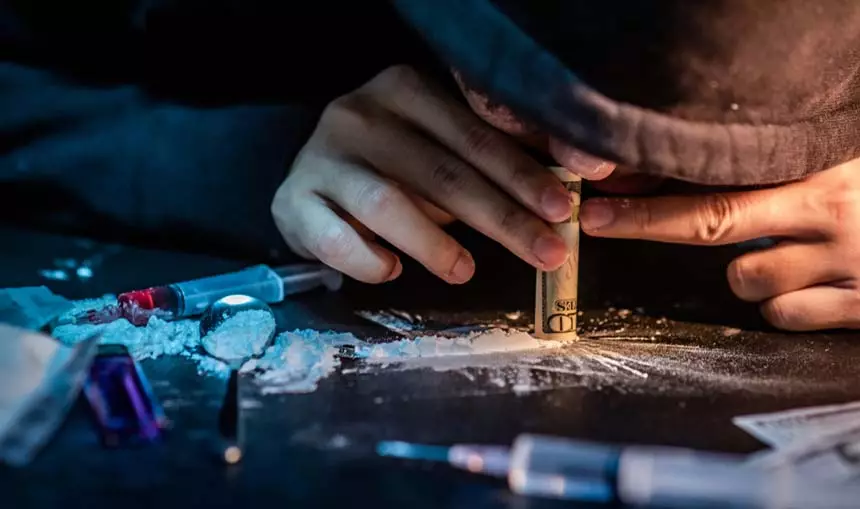Recognizing the Red Flags of Fentanyl Use and Abuse
The signs of fentanyl use can be subtle, but you must be aware of them. Knowing these can save an individual’s life. Struggling with addiction is common–you are not alone. Learning the signs of opioid abuse is the first step in recovery or helping someone you love.
Hope comes from knowledge. You are taking an admirable step by learning about substance use disorders and the signs and symptoms of fentanyl addiction.
Keep reading to learn more about how to tell if someone you love is using fentanyl, and how to get them effective help at South Shores Detox and Recovery!
Get Help Stop Using Fentanyl: Understanding the Drug
Fentanyl is a synthetic opioid that can treat severe pain. It is potent and is a Schedule II controlled substance due to its high potential for abuse. Physicians may prescribe it in a hospital or controlled setting. It’s often prescribed for pain treatment. It dulls pain, similar to morphine.
But most of the fentanyl abuse does not come from medical use but from questionable sources. Many who struggle with addiction obtain fentanyl from illegal street dealers who don’t care about the problems they cause. Increasingly, heroin in California as well as across the United States, is contaminated with, or even is primarily composed of, fentanyl.
How Do People Use Fentanyl?
Fentanyl usage involves injection, smoking, snorting, and by mouth. It is often present in other substances, such as heroin or cocaine.
The effects of fentanyl are quickly pleasurable, priming the person for drug abuse.
How Is Fentanyl Addiction Treated and Withdrawal Symptoms Managed?
Fentanyl use disorder is a condition requiring professional help to overcome.
The first step to treating any substance abuse disorder is detoxification. During fentanyl detox, the client comes off the drug under medical supervision. Fentanyl withdrawal symptoms can be severe. Medication will be prescribed to control vomiting, severe pain, and cravings.
At South Shores, our staff will keep you comfortable and safe during detoxification. We will provide all support needed to get the best results.
After the fentanyl withdrawal phase, the client may need the help of a rehab center. Each person should receive customized and compassionate care to fit their specific needs. Here are two typical treatment tools:
- Behavioral therapies, like cognitive-behavioral therapy (CBT) and contingency management. These treatments help clients identify and change behavior patterns. They learn how to prevent relapse.
- Medications such as methadone, buprenorphine, and naltrexone can manage cravings and prevent relapse.
Tell Me More About Your Fentanyl Rehab Program
The best fentanyl rehab program considers the individual’s health needs and preferences.
The American Psychiatric Association suggests the best recovery program should provide various services. It starts with medically-supervised detoxification, with care for withdrawal symptoms. Other treatment of the symptoms, and signs may include behavioral therapies and medication-assisted treatment. It should also have a strong aftercare program to support clients in their journey.
Some components of a healthy recovery include the following:
- CBT
- Dialectical behavior therapy (DBT)
- Trauma therapy
- Activities to learn how to stay sober
- Aftercare support and counseling.
Statistics on Fentanyl Abuse, Use, and Misuse
Here are some eye-opening statistics on fentanyl addiction.
According to the (CDC), synthetic opioid overdose deaths rose in 2021. Those included deaths from fentanyl. They report an increase from 36,000 in 2019 to 71,450 in 2021. Fentanyl is now the most common drug in overdose deaths in the United States. It accounted for 65% of all drug overdose deaths in 2021.
The Drug Abuse Warning Network noted the negative consequences of fentanyl abuse in a recent report. They also found that fentanyl-related emergency room visits rose throughout 2021. They peaked in the fourth quarter. The majority of these were young adults. They also pointed out how fentanyl abuse played a role in substance use disorder in males aged 26 to 44 over other opioids.
Fentanyl abuse continues to increase, a trend that experts hope to reverse. If you see the signs and symptoms, please find help for your loved one now.
Can You Overdose on Fentanyl and How Can Fentanyl Overdose Be Treated?
Yes, fentanyl overdose occurs. It is a life-threatening medical emergency. The overdose effects can cause respiratory depression. One direct result is hypoxia (low oxygen levels). It is crucial to seek immediate medical attention if you suspect an overdose.
This emergency is dire and needs immediate medical attention. The first step is to call 911 or seek medical help. First responders may give naloxone to reverse the opioids and restore breathing.
Can Fentanyl Cause Addiction?
Yes, fentanyl can cause addiction. The drug can produce feelings of euphoria and relaxation. That leads to repeated use and the development of tolerance. Over time, they may need higher doses to achieve the desired effects, leading to addiction.
What are the Causes of Fentanyl Abuse and Addiction?
The causes of fentanyl use disorder are many. One consideration is whether someone has a novelty-seeking personality type. These are people who like trying new things. You might describe them as thrill-seekers.
However, personality traits may also increase the chance someone will struggle. That’s because opioids produce feelings of pleasure.
Besides the high from fentanyl, they also might enjoy the risk of related behaviors. Consider the following symptoms:
- Engaging in criminal activity
- Forging prescriptions
- Spending much time obtaining
- Going to extremely uncomfortable or unsafe places to obtain fentanyl
- Trying larger doses
- Driving while impaired
- Abandoning daily responsibility to use drugs
- Navigating legal interactions
- Taking an ever greater risk to continue the addiction
Those with a novelty-seeking personality type often feel euphoric when they engage in incredibly dangerous behaviors.
What are the Causes and Risk Factors for Fentanyl Addiction?
The causes and risk factors for fentanyl use disorder are complex and multifactorial. Some factors that can contribute to abuse include the following:
- Genetics or family history
- Environmental factors
- Other mental health conditions
- Exposure to trauma
- Adverse childhood experiences (ACSs)
One or a combination of these factors can increase the chances of opioid addiction.
What are the Effects of Fentanyl Abuse?
The effects of fentanyl abuse can have short-term and long-term impacts on physical and mental health. Short-term effects may include drowsiness, confusion, nausea, and respiratory depression.
Long-term effects include these things:
- Tolerance for opioids
- Dependence
- Developing other addictive behaviors
- An increased risk of overdose
- Many other adverse health consequences.
Physical, Mental, and Social Side Effects of Fentanyl Abuse
As you may already be familiar with from your use of fentanyl, or seen from a loved one’s use, this potent narcotic has a range of consequences beyond killing pain. Using this substance can cause a wide range of harmful side effects. These symptoms include the following:
- Drowsiness
- Dizziness
- Nausea
- Vomiting
- Oxygen deficiency (slow breathing)
- Constipation
- Decreased heart rate
- Headaches
- Pinpoint pupils
- Fentanyl slurred speech
- Dry mouth
- Sweating
- Itching
- Overdosing
- Tolerance, or the need for larger doses as the body adjusts.
Besides physical symptoms, there are emotional and behavioral symptoms. Know the following signs, and get help if they have become an issue :
- Decreased cognitive function
- Impaired judgment
- An increased risk of overdose
- Social withdrawal
- Legal interactions due to any criminal activity taking place
- Disregarding daily responsibilities
- Disturbed relationships
- Financial problems
- Emergency room visits
- Forging prescriptions
- Developing other addictive behaviors
How Does Fentanyl Affect the Brain?
If you don’t struggle, you might wonder why someone would abuse fentanyl. Here’s how addiction occurs, even when someone understands such consequences.
Fentanyl affects the brain by binding to opioid receptors and increasing dopamine levels. Dopamine is a neurotransmitter associated with pleasure and reward. This reward can produce feelings of euphoria, relaxation, and pain relief.
Over time, this drug causes changes in the brain. The body’s tissues weaken. It may later contribute to addiction and other mental diagnoses.
Co-occurring Disorders and the Complexity of Fentanyl Addiction
This addiction can co-occur or exist alongside other substance use disorders or mental health conditions. Below are a few examples:
- Depression
- Anxiety disorder
- Post-traumatic stress disorder (PTSD)
- Alcohol abuse
- Other opioid use disorders
These co-occurring disorders can make addiction more complex. But treatment is still possible. Addressing addiction and co-occurring disorders in a custom-tailored program is the key to success.
South Shores Can Help You Overcome Fentanyl Addiction
If you or your family members struggle with any form of a substance use disorder, it is vital to seek professional help. Knowing the symptoms of fentanyl addiction and naming it is the first step. Next, it’s time to connect with help.
South Shores is a leading behavioral health center based in Southern California that offers evidence-based treatment. We can help you beat addiction and treat co-occurring disorders. Our team provides compassionate and personalized care to each client.
Contact us today for a confidential discussion about how we can help you or a loved one on the path to recovery!




